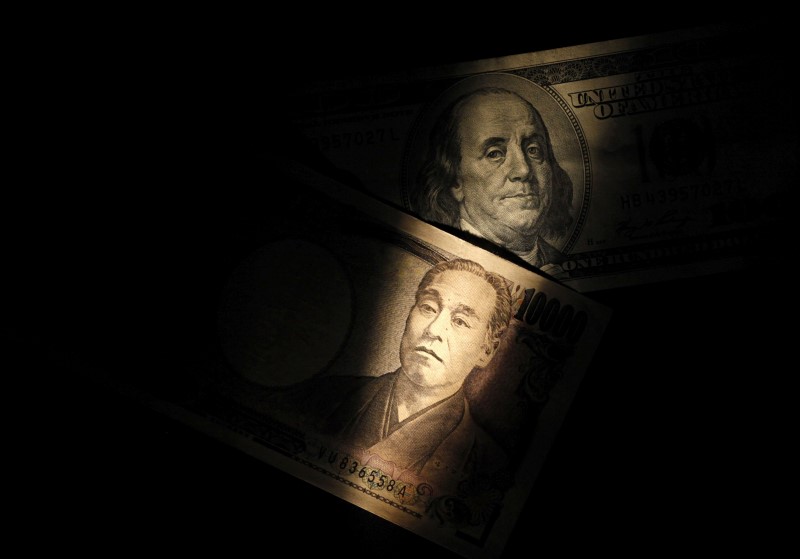By Anirban Nag
LONDON (Reuters) - The yen eased on Monday as Japan stepped up its threat of intervention in the currency market before the Group of Seven meeting it will host this week, erasing early gains made as Chinese data disappointed.
Japan's top currency diplomat Masatsugu Asakawa told the Nikkei newspaper that excess volatility may have adverse effects on the economy and that the G7 and G20 countries have repeatedly discussed how to deal with disorderly currency moves.
Japan will host a G7 finance ministers and central bankers summit on May 20-21 amid talk that Tokyo has been trying to drum up support for some kind of response to a strong yen.
Asakawa, who is vice finance minister for international affairs, also told Reuters that Japan would not be bound by the U.S. Treasury's recent report on currencies, which appeared to warn against unilateral intervention in currency markets.
Investors trimmed favorable positions in the yen, with expectations that Japan could ease monetary policy sooner rather than later to bolster inflation and growth reinforcing cautious investor sentiment.
The dollar was 0.1 percent higher at 108.75 yen
"There may be rising scope of the BOJ considering a more aggressive policy stance later on," said Manuel Oliveri, currency analyst at Credit Agricole (PA:CAGR).
"It must still be kept in mind that inflation expectations as measured by five-year inflation swaps remain close to multi-year lows and that Governor (Haruhiko) Kuroda appears to make a bigger case of additional measures being considered should it prove necessary."
Kuroda said on Friday that the Bank of Japan has ample room for easing, having adopted negative rates earlier this year.
Analysts said Japan's first-quarter GDP data on May 18 would be a focus. A Reuters poll forecasts annualized economic growth of 0.2 percent in January-March following a 1.1 percent contraction in October-December.
"There are likely to be some market swings if the result were to come in much weaker than expected," said Satoshi Okagawa, senior global markets analyst for Sumitomo Mistui Banking Corporation in Singapore.
A weak number would knock stocks and bolster demand for the yen, Okagawa added, although the currency may retreat later if the government's responses include delaying next April's sales tax hike or similar.

The government denied a weekend media report that Prime Minister Shinzo Abe has decided to delay the sales tax hike.